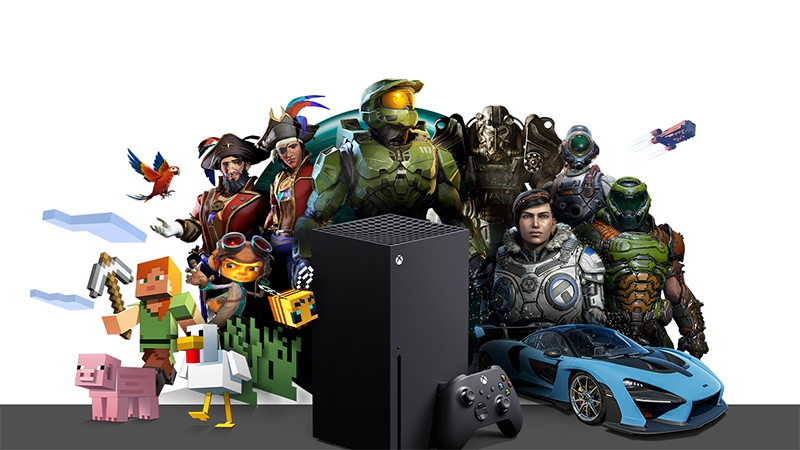Trending
Opinion: How will Project 2025 impact game developers?
The Heritage Foundation's manifesto for the possible next administration could do great harm to many, including large portions of the game development community.
The European Commission is looking into Microsoft's merger with Activision Blizzard, but doesn't think the FTC's lawsuit has any real substance.

The FTC's recent lawsuit against Microsoft's Activision Blizzard acquisition is receiving from pushback from the European Commission. In a report from MLex (and released by ResetEra), the European regulator argued against the FTC's notion that Microsoft has been dishonest in making Starfield and Redfall into Xbox exclusives.
Potentially locking off games to Xbox was a point of contention in the FTC's statement (as it has been repeatedly during this acquisition). The US organization used Bethesda's upcoming pair of titles as examples of what the Xbox maker could do with Activision Blizzard's stable of games, saying that Microsoft "has already shown that it can and will withhold content from its gaming rivals."
Similar complaints were leveled against Microsoft back in November, when the EU launched its full investigation into the acquisition. Its words against the FTC stop just short of saying the US regulatory board is lying about its claims against the game publisher.
Here, the EU has argued that neither Starfield or Redfall can be used as examples of withholding content, as Microsoft has frequently indicated both titles would be Xbox exclusive. "Microsoft didn't make any 'commitments' to EU regulators not to release Xbox-exclusive content following its takeover of ZeniMax Media," the EU told MLex.
"The commission cleared the Microsoft/ZeniMax transaction unconditionally as it concluded that the transaction would not raise competition concerns."
Further, the EU added that Microsoft choosing to make particular games exclusive wouldn't be denying other publishers an "essential input" even if Bethesda titles were permanently siloed off to the Xbox ecosystem.
Microsoft, for its part, told the EU that Starfield and Redfall's exclusivity is also warranted because they're both wholly new properties with "no pre-existing sales, revenue, or community of gamers on any console, much less PlayStation, that would be impacted by an exclusivity decision."
That Starfield and Redfall lack pre-existing communities has been previously used by Microsoft to justify their exclusivity before. Towards the end of November, it released filings to UK regulators which explained that both titles are exclusive to meet particular niches and mitigate potential losses.
Both titles are "mid-sized games," according to the filings, and may be joined by The Elder Scrolls 6 in being exclusive to the Xbox ecosystem.
However, the fact of that matter is that both games already had communities the moment they were announced. Starfield marks Bethesda Game Studios' first new property in decades (and its first console title since 2018's Fallout 76), and Redfall hails from Arkane, makers of cult classics such as Prey and the Dishonored franchise.
The FTC's claims may lack merit, but Microsoft's justification for Starfield and Redfall not coming to PlayStation and Nintendo appears equally baseless.
You May Also Like